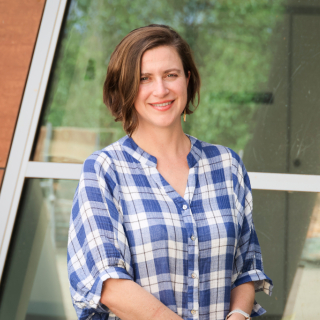Hayley Henderson
Senior Lecturer
Qualifications
PhD, Urban Studies, The University of Melbourne (2018)
Graduate Course in Higher Education, The University of Melbourne (2014)
Master of Development Practice, The University of Queensland (2007)
Bachelor of Regional and Town Planning (Hons), The University of Queensland (2004)
Dr Hayley Henderson is a Senior Lecturer at the Institute for Infrastructure in Society (I2S), based at the Crawford School of Public Policy. She researches how urban policies and infrastructure programs are developed and implemented with a focus on social value, including through collaborative forms of governance that involve diverse stakeholders, multiple jurisdictions, and levels of government. She studies urban revitalisation, urban river catchment planning, and other types of major projects in cities. Dr Henderson is an engaged researcher who works with partners, predominantly in the public sector or multilateral agencies, to design research with a strong emphasis on research-practice integration and implementation. She has taught into planning and public policy programs in Melbourne and Buenos Aires over the last decade, including subjects relating to social planning, urban planning theory, practice and governance. In her role at ANU, Hayley is the convenor of Public Policy in Cities (POGO8132), offered to students of the Master of Public Policy and Master of Public Administration. Her current projects are:
Managing and Mitigating Social Risks of Major Infrastructure Projects. Dr Henderson is co-Chief Investigator on the ARC Linkage project “Managing and Mitigating Social Risks of Major Infrastructure Projects” in Australia (2023-2025). Through co-research, the team has identified evolving understandings of social risk (including associated precursors or causes, factors and consequences) in the Australian infrastructure sector and is currently developing a tool for the identification, evaluation, and management of social risks associated with major infrastructure projects.
Blue Green Infrastructure in Urban Stormwater Management and River Catchment Planning. Dr Henderson works in Australia and internationally on urban stormwater management and urban river catchment planning. She is part of the CONEXUS project (2020-2024), an EU funded Research and Innovation Action (Horizon 2020) that co-creates Nature-based Solutions (NbS) to restore urban ecosystems and deliver social benefits across seven South American and European cities. Dr Henderson’s work on this project builds on a decade-long trajectory of research in urban river catchment planning and upgrading in Argentina, including the role Blue Green Infrastructure plays in supporting sustainable approaches to urban stormwater management with socio-economic co-benefits. She has undertaken multiple research consultancies funded by multilateral agencies focused on integrating BGI into policy and practice, including guidelines for Ecosystem-based Adaptations in urban areas and on incorporating BGI into social housing programs in Argentina. Dr Henderson also sits on the NbS Advisory Committee for an Australian Government-funded project (National Emergency Management Authority) to develop guidelines for NbS for flood resilience in affected communities across Australia’s East Coast. She was co-editor of a 2023 Special Issue on the “Drivers and Dynamics of Collaborative Governance in Environmental Management.”
An ethic of cultural pluralism in governing urban revitalisation. During her doctoral and postdoctoral studies, Dr Henderson formed part of an Australian team to conduct a local case study and international comparison of eight cities on the influences of austerity policies on urban governance. The research underscored the vital role of robust local government policymaking in the context of state level renewal programmes; the value of both formal and informal work across policy domains and between jurisdictions; the importance of ongoing, place-based community engagement and, how actors from Culturally and Linguistically Diverse (CALD) communities facilitated an expanded sense of pluralism in collaborative settings in this highly diverse setting. These conditions proved fruitful for problem-solving relating to urban decline. A detailed Research Briefing on the main findings from the Central Dandenong case study was published, including lessons for public policy and summarised in The Conversation and Policy Forum. In collaboration with SGS Economics & Planning and Professor Helen Sullivan, Dr Henderson designed a method to identify Australia’s other “super” and “stably” diverse urban centres. The direction of this project aims to study the role and impact of “an ethic of cultural pluralism” in collaborative governance of urban revitalisation, including major infrastructure, across some of Australia’s most diverse urban centres.
Research interests
Dr Henderson’s research interests include:
• The social value of urban plans and infrastructure programs in cities.
• Social risk and major infrastructure projects.
• Collaborative urban governance, particularly of urban revitalisation, urban river catchment planning and other major projects.
• Sustainable approaches to urban river catchment planning.
• Interjurisdictional dynamics in federal systems.
• The municipal level in urban planning.
• Social policy in urban planning (inc. cultural diversity).
• Informality.
• Comparative urbanism.
Dr Henderson conducts engaged research through partnerships and other forms of collaboration. Through co-research, the methods adopted involve early and long-term engagement between researchers and practitioners (e.g. public policymakers, program funders, community organisations, representative bodies). In terms of data collection, Dr Henderson often conducts case studies and has employed:
• Delphi Technique;
• Focus groups;
• Interviews;
• Participant observation;
• Document analysis (particularly of policy documents); and
• Basic statistical analysis.
Updated: 9 November 2024/Responsible Officer: Crawford Engagement/Page Contact: CAP Web Team











